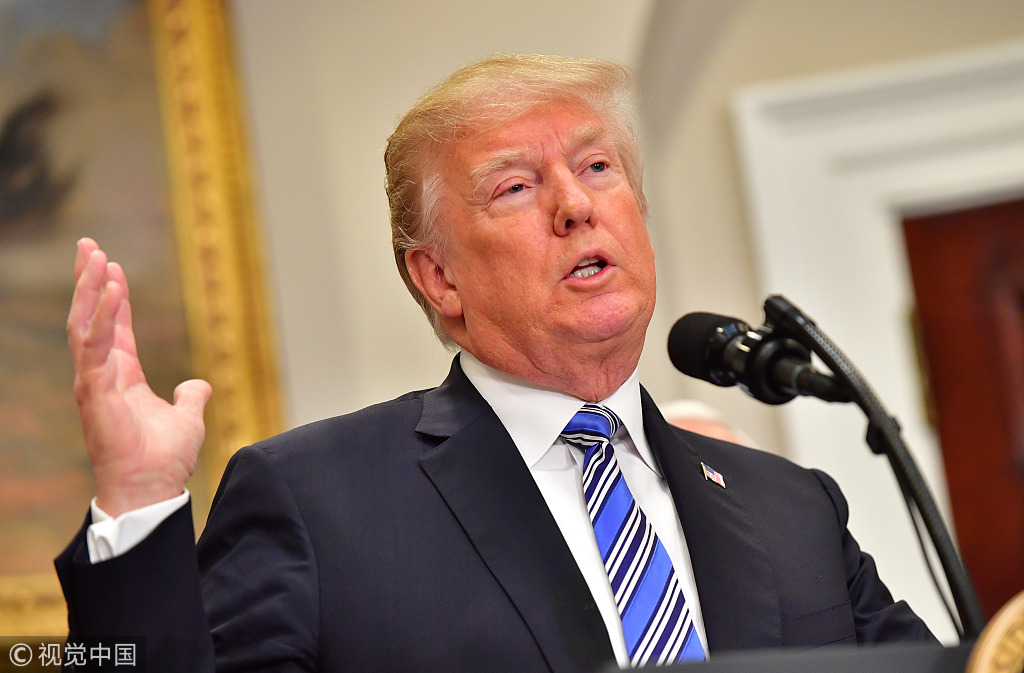
US president Donald Trump speaks prior to signing a proclamation applying tariffs to steel and aluminum imports, in the Roosevelt Room at the White House in Washington, DC on March 8, 2018. [Photo/VCG]
NEW YORK - The United States District Court for the Southern District of New York has ruled that US President Donald Trump cannot block anyone on Twitter.
"This case requires us to consider whether a public official may, consistent with the First Amendment, 'block' a person from his Twitter account in response to the political views that person has expressed, and whether the analysis differs because that public official is the President of the United States," according to the court order published Wednesday.
"The answer to both questions is no," said US District Judge Naomi Reice Buchwald in the 75-page order.
The ruling reasoned that Twitter is a "designated public forum" and that "the blocking of the plaintiffs based on their political speech constitutes viewpoint discrimination that violates the First Amendment."
"We hold that ... the President and (Daniel) Scavino exert governmental control over certain aspects of the @realDonaldTrump account, including the interactive space of the tweets sent from the account," the order concluded.
"A declaratory judgment should be sufficient, as no government official -- including the President -- is above the law, and all government officials are presumed to follow the law as has been declared."
The ruling means that Trump may have to unblock the seven individual plaintiffs, while an appeal might be lodged against the ruling by relevant parties.
The case was filed on in July of 2017 against Trump and his media assistants including the White House Social Media Director and Assistant to the President Daniel Scavino.
One of the individual plaintiffs, Rebecca Buckwalter, tweeted on Thursday about her winning, arguing that "an official's Twitter account is often the central forum for direct political debate with and among constituents."


